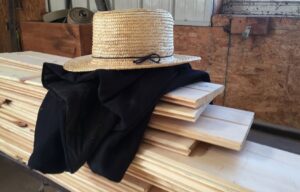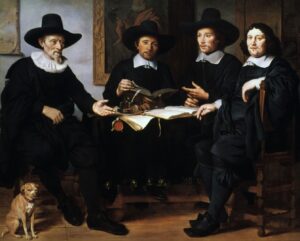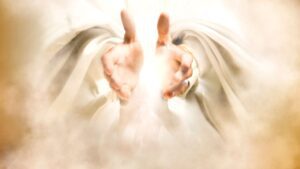This space is the beginning of a series about Protestant groups. It excludes the historically mainline Protestant denominations of the Congregational Church, the Episcopal Church, the Evangelical Lutheran Church, the Presbyterian Church, the United Methodist Church, the American Baptist Convention, and the Disciples of Christ. This issue is about Quakers and Shakers. (I did not choose them because they rhyme!)
Quakers, also called The Society of Friends, or Friends Church began in mid-17th-century England. How did they get the name Quakers? “Quaker” was originally a scornful nickname for those who believed in the biblical passage that people should “tremble at the Word of the Lord.” Quakers eventually just embraced the word. They are dedicated to living under the “Inward Light,” without creeds, clergy, or other fancy religious forms. They reject religious rites such as baptism and the Eucharist because they don’t feel that they need any ritual to contact God. They don’t make a big deal out of Christmas or Easter. They don’t do Lent or all the rituals of Holy Week. Quakerism is a way of life, and not a set of beliefs; many Quakers find the life and teachings of Jesus inspirational. A Quaker translation of the Bible, a “competitor” to the King James Bible, was not well done nor successful.
Quakers have endured religious persecution. The Puritans considered Quaker beliefs blasphemous and a threat to their highly structured way of life. One writer in 1660 reported 64 Quakers imprisoned, two severely lashed, one branded with an “H” and 3 executed. (I am not giving you all the gory details.)
Quakers are most well-known for their insistence on pacifism and non-violence. They also promote the prominent role of women Quakers as public speakers and leaders in the Society and champion progressive stances throughout their history. They include the abolition of slavery and women’s rights. Though in America’s wars they have been conscientious objectors, many served as medics, ambulance drivers and noncombat positions. In 1947, their humanitarian efforts received the Nobel Peace Prize for their work in supporting civilian victims during and after the two world wars. They fed starving children and helped Europe rebuild itself. Thus for 300 years Quakers have worked to heal rifts and oppose war.
There is a Quaker Meeting House in Downers Grove. This a quote from their website.
Our Meeting is based on silent worship. It is possible that no one will speak during the entire meeting. Anyone is free to speak if he or she feels moved to it by a leading from the Light within. Each message will help someone, but our needs differ. If the message does not “speak to your condition,” try to reach the spirit behind the words. We maintain silence for at least a few minutes after vocal ministry to give time for a message to reach a quiet center.
Moving on to the Shakers. The United Society of Believers were a radical sect of the Quakers who became known for their ecstatic worship—ceremonies that included trembling, shaking “frenzied screeching and whirling.” They were joined by the exiled Camisard Protestants also known as Huguenots, from France who fled to England. The name Shaker grew out of the group’s reputation as “Shaking Quakers” known for their physical worship including spiritualism and frenetic dances in their worship.
Shakers lived in their own communities, were celibate and did not marry. Together they worked out the distinctive pattern of Shaker social organization, which consisted of celibate communities of men and women living together in dormitory-style houses and holding all things in common. They were one of many utopian experiments in the 19th century and quite successful. So how did the community grow? They took in orphaned, poor children and converts, teaching them important skills in a very rigid environment. I had a friend whose mother was raised a Shaker, but she left to join the real world and marry. The Shakers didn’t evangelize, and because they were celibate, their numbers declined. In the mid-19th century 2000 to 4000 believers lived in eighteen major communities. By 1900, there were less than 1,000; by 1936, there were 92. As of 2017 there are just two.
Shakers believed that simplicity, hard work, labor, craftsmanship, and creativity as ways to worship God. They were known for their manufactured goods. They invented metal pen nibs, the flat broom, a prototype washing machine called a wash mill, the circular saw, waterproof and wrinkle-free cloth, a metal chimney cap that blocked rain, and improved the plow. Shakers were known for producing high-quality furniture, food, and household goods. Museums have examples of their drawings, samplers, and furniture. They still inspire contemporary artists.
This is more than most of you wanted to know about the Quakers and Shakers. However, their belief in God, each in their own way, contributed and continues to influence our American way of life.


